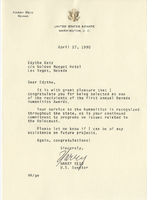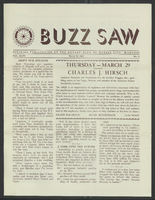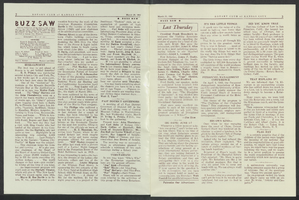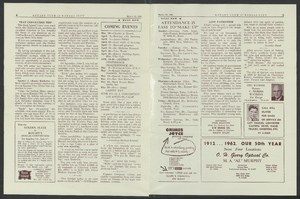Search the Special Collections and Archives Portal
Search Results

Alex de Castroverde oral history interview: transcript
Date
Archival Collection
Description
Oral history interview with Alex de Castroverde conducted by Monserrath Hernandez on April 17, 2019 for the Latinx Voices of Southern Nevada Oral History Project. In this interview, De Castroverde discusses his family's background and his parent's emigration story from Cuba to the United States. He talks about growing up in Reno, Nevada, his father becoming a lawyer, and attending the University of Nevada, Reno. De Castroverde remembers the establishment of De Castroverde Law Group, the significance his father had on the Hispanic community in Las Vegas, Nevada, and taking over operations of the law firm with his brother. Lastly, De Castroverde talks about his involvement with Cristo Rey St. Viator College Preparatory High School, the Guinn Center, and the Las Vegas Business Academy.
Text
Thalia Dondero Political Papers
Identifier
Abstract
The Thalia Dondero Political Papers (1934-2003), contain correspondence, pamphlets and reports used by Dondero to conduct official business, as well as information on county and city budgets, social and health services, liquor and gaming, planning, public works, environmental impact reports and a large section on water management. Dondero served as a Clark County Commissioner for twenty years and engaged in numerous other civic and political activities. The bulk of the materials are derived from Dondero's last four years in office, 1990-1994, but a few items from Dondero's earlier career are included.
Archival Collection
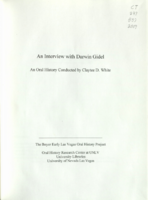
Transcript of interview with Darren Gidel by Claytee White, October 21, 2009
Date
Archival Collection
Description
Text
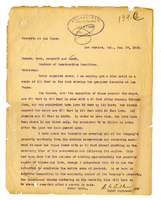
Letter from E. G. Tilton to William Hood, W. H. Bancroft, and J. Ross Clark, January 27, 1905
Date
Archival Collection
Description
Text
Elgin Hamblin and Judith Hamblin oral history interview
Identifier
Abstract
Oral history interview with Eglin "Peggy" Hamblin conducted by Irene Rostine on October 25, 1991 for the Women's Research Institute of Nevada (WRIN) Las Vegas Women Oral History Project. Judith Hamblin, Eglin's daughter, helps prompt her mother to respond and recall answers. Hamblin opens her interview by discussing her time working for Basic Magnesium, Inc. during World War II. She describes her work, and her husband's duties at the plant as a security guard, and as a member of the construction crew that built the plant and the surrounding workers' homes. Hamblin goes on to discuss life in Henderson, Nevada at the time, and how the local high school was an integral meeting and event spot for the community.
Archival Collection

Transcript of interview with Jerome "Jerry" Jay Vallen by Lisa Gioia-Acres, October 2, 2007
Date
Archival Collection
Description
Text
